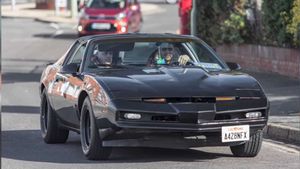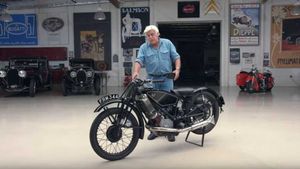Far from being a 'poor man's Porsche, the 914 went on to create a legacy of its own.
Porsche has a long and prestigious history that spans over seven decades, an exciting milestone celebrated in 2018. However, a less celebrated piece of Porsche history turns 50 this year in 2019, one we think deserves its time in the spotlight. The 914 story is one of opportunity, partnership and, ultimately, politics. Once deemed to be ‘the poor man’s Porsche’, this little sports car is again finding favour with collectors and enthusiasts today.
Its tale begins not with Porsche but close relative Volkswagen, as the iconic Type 34 Karmann Ghia awaited a successor. Porsche and Volkswagen had been intertwined since their respective inceptions but even more so during this period, as the majority of product development work for VW was outsourced to Porsche.
In order to fulfil that existing contract with Porsche, Volkswagen needed to task the sports car manufacturer with building one last model. A replacement for the Karmann Ghia was suggested, something that suited Porsche well given it too wanted to produce a more affordable sports car.

Two variants of the lightweight two-seat sports car were developed, one with a flat-four engine for Volkswagen and the other with a flat-six from the 911 for Porsche. Visually the cars were to be near identical, which raised concerns with Porsche and its American market image. To remedy this, a verbal agreement was made that four-cylinder VW variants would be badged as Porsches in the US, with European models badged VW-Porsche.
Just as the first 914 prototype car was undergoing testing in 1968, Volkswagen's chairman, Heinz Nordhoff, passed away. The man replacing him, Kurt Lotz, was not privy to the gentlemen's agreement between Volkswagen and Porsche sharing the model. In his eyes, the car belonged to Volkswagen. Porsche was given an ultimatum; share the costs of building all 914s, or lose all access to the model.

Porsche reluctantly agreed to help cover the tooling bills but its begrudging compromise had ruined the company's pricing framework. By the time the 914 entered the Porsche showroom, its new ‘entry-level’ flat-six sports car was barely cheaper than the 911T. While Porsche struggled to shift 914/6s, the four-cylinder 914/4 became one of Volkswagen's best sellers, even outselling the Porsche 911.
Porsche discontinued the 914/6 in 1972 after just three years and 3351 sales. It was clear that the cheaper, smaller-engined cars had greater appeal, hence a 100 hp 2.0-liter engine replacing the flat-six in 1972. While 914 production ended in 1976 after selling 118,000 cars worldwide, the 2.0-liter engine continued on in entry-level 911 models such as the 912E.
Regardless of the politics that almost derailed the Porsche 914, this lightweight sports car was adored by many. Weighing less than 1000kg and engineered to make the most from its mid-engined layout, it was a true driver’s car. American motoring journal Motor Trend named the 914 its ‘Import Car of the Year’ in 1970.

The Porsche 914 even experienced some motorsport fame, as racing drivers Claude Ballot-Lena and Guy Chasseuil won the GTS class at the Le Mans 24 Hours in 1970. Multi-class racing meant it was also pitched against Porsche's legendary 917K and 908s in the same race but still managed 6th place overall, going the distance as bigger and more powerful machines from Ferrari and Matra's works squads came up short.
That's what happens when you disregard the 914 as a glorified Volkswagen undeserving of the Porsche badge. It's finely poised and will surprise those who underestimate it. Those 914/6s which Porsche couldn't move off its forecourts are now more in demand than ever, with one example even selling for just shy of $300,000 last year.
Far from slipping into irrelevance as a footnote in Porsche history, it inspired a new line of entry-level models, with the mid-engined Boxster being launched in 1996. Nowadays the 718 Boxster and Cayman come only with four cylinders, that same number of cylinders some purists decried as not belonging in the back of a Porsche. So much for a Volkswagen in Porsche clothing, then.




